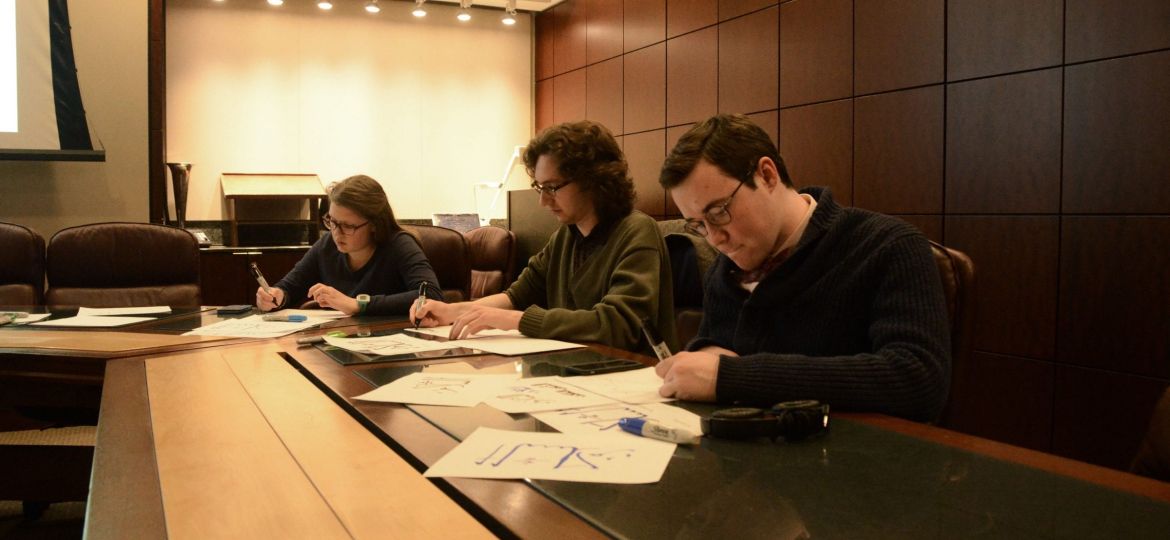
The last two years have been a tumultuous time for Muslims in America, with the national debate over President Donald Trump’s travel ban and harsh anti-Muslim rhetoric thrusting Islam into the political spotlight and sparking contentious public discussion. To counter anti-Muslim prejudice and combat misinformation, the St. Olaf Muslim Student Association (MSA) organized a series of events for ‘Islamic Awareness Week’ celebrating Islam and Islamic culture.
According to Wed Al-Nod ’19, a member of the Muslim House, this is the first year that the MSA has organized an ‘Islamic Awareness Week.’ Al-Nod described how the election of Trump and a political climate that often views Muslims as terrorists and Islam as an ethnicity spurred their decision to organize the week and its events.
“I think that’s the most crucial thing that we’re trying to get out, is that Islam is not supportive of any terrorism or any of that, but at the same time we don’t want to keep justifying ourselves,” Al-Nod said. “We don’t want to keep explaining, so it’s more of an informative [week], it’s not a response to ‘hey we’re not terrorists,’ it’s more like ‘this is what we are.’”
The events varied broadly, ranging from a theological lecture on gender and modesty to an event celebrating the hijab and teaching people how to wear it.
The first event of the week, a panel discussion titled “Muslims in America: Dynamics of Inclusion & Exclusion,” was held in Viking Theater on Monday, April 16 and co-sponsored by the St. Olaf Chapter of Pi Sigma Alpha, the national political science honor society, and Professor of Political Science Dan Hofrenning.
The event’s speakers discussed a broad range of topics, from anti-Muslim prejudice, to the empowering effect of Islam among some people of color, to the misconception that the ‘Muslim world’ is a distinct geographical entity. Regina Mustafa, the founder and executive director of Community Interfaith Dialogue on Islam in Rochester, Minnesota, began the discussion by recounting her experience as a Muslim community leader and political candidate, and the negative attention she often receives as a result of her position.
Mustafa described the steady stream of vitriol hurled her way on social media, and detailed how she is often asked loaded questions about how her religion affects her political priorities.
“Just the other day I was at a public event in downtown Rochester, and I had somebody else … come up to me and say ‘do you think people are worried that as a Muslim mayor, you will allow Muslims to have free reign in Rochester and retaliate against the police?’ I contacted this person, and invited him to coffee … I wanted to sit down and express my concerns for what he had said previously … it snowballed pretty quickly, and it turned into an Islamophobic, sexist, obscene tirade against me and my religion, using obscenities so loud against me that he had to be removed from the coffee shop.”
Speaking after Mustafa, Makram El-Amin, Imam of Masjid An-Nur in North Minneapolis, described how he forged his Muslim identity in part as a response to racism and discrimination. El-Amin explained how as he grew up, Islam made him feel valued in a society that devalues people of color.
“Islam began to further provide that context as we grew and began to understand the fullness of Islam in the context of the Qu’ran and the tradition of Muhammad, peace be upon him,” El-Amin said. “We began to even further see our worth being established and reinforced as something that is intrinsic but from God, it’s put into me from God, and so nothing can take that away.”
After El-Amin spoke, Zareena Grewal, an associate professor of American studies and religious studies at Yale University, spoke about her book “Islam is a Foreign Country: American Muslims and the Global Crisis of Authority,” as well as current events. Grewal outlined her argument that the Muslim world is not an actual place, but “a western idea built on a racial logic that Muslims live in a world of their own.”
She went on to argue that Muslims need to eschew the term ‘moderate Muslim,’ and that the ‘moderate’ form of Islam endorsed by President Trump during his visit to Saudi Arabia is the one that “will uncritically toe the line when it comes to U.S. foreign policy.”
Instead, argued Grewal, Muslims should reclaim the idea of ‘radical Islam,’ the form that utilizes peaceful dissent in the mold of Muhammad Ali and Elijah Muhammad.
“Around the world there are Muslims who are committed to social justice, anti-racism, feminism, anti-imperialism, and yes, even peace, who describe themselves as radical,” Grewal said.
Islamic Awareness Week also included a lecture by Sheika Eman Ibrahim on challenges facing the Muslim community in America, as well as a celebration of Arabic calligraphy and Islamic geometry. The week was capped off with a ‘Community Walk’ down to Northfield “to embrace and encourage faith manifested in action.”
carlen1@stolaf.edu














